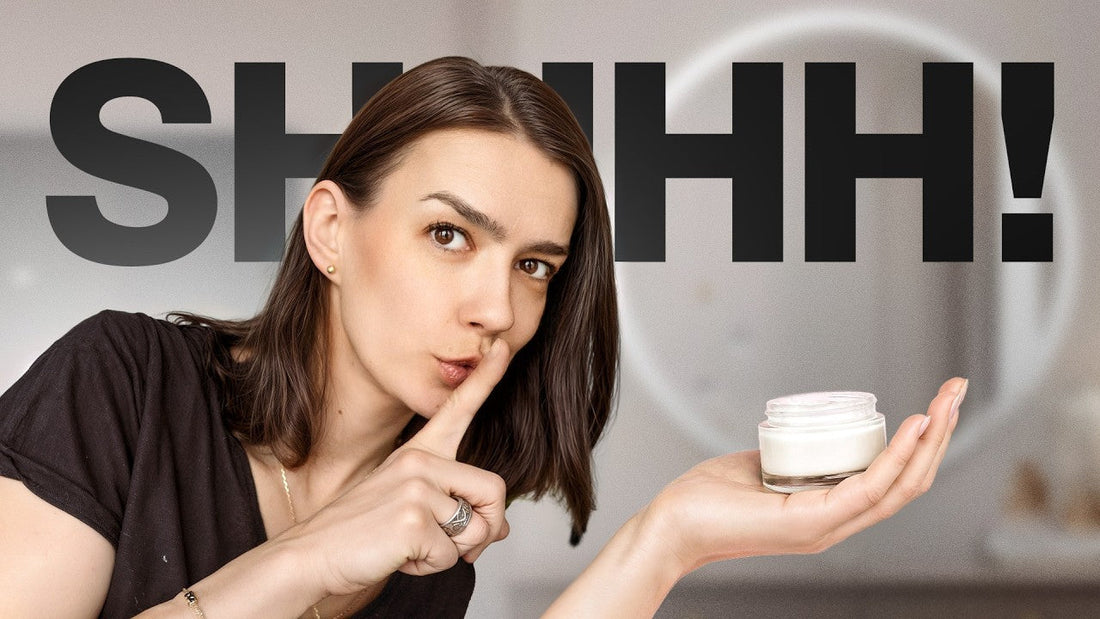
Greenwashing: The Beauty Industry’s Dirty Secret
Share
Few industries are as good at selling promises as beauty. For decades, brands have mastered the art of telling us what we want to hear: flawless skin, eternal youth, guilt-free indulgence. In recent years, they’ve added another promise to the mix: sustainability. From “reef-safe” sunscreens to “non-toxic” moisturizers, the beauty aisle has been painted green. But look closer, and most of those promises begin to unravel.
The Rise of Greenwashing
Greenwashing is more than a marketing trick, it’s a business model. By cloaking products in the language of responsibility (“eco-friendly,” “clean,” “safe”), companies capture the growing demand for ethical consumption while changing very little about how they actually operate.
The problem starts with regulation or lack thereof. In the United States, the FDA does not define “clean,” “reef-safe,” or “non-toxic.” This vacuum gives brands free rein to set their own definitions, which usually means whatever sells. A sunscreen can contain coral-killing oxybenzone and still call itself reef-safe. A face cream can be packed with synthetics and still market itself as clean.
And when they’re caught, it’s often too late. In 2021, several sunscreen companies were hit with lawsuits after independent labs detected benzene, a known carcinogen in products marketed as safe. In 2022, Hawaii banned oxybenzone and octinoxate, citing coral reef damage, but many brands still sell “reef-safe” sunscreens outside the state containing these very chemicals. In Europe, regulators fined companies for misleading “natural” and “organic” claims in cosmetics, while U.S. enforcement remains almost nonexistent.
Why It Matters
At best, greenwashing confuses consumers. At worst, it actively harms them. When shoppers buy into false sustainability claims, they unknowingly support practices that damage ecosystems, exploit workers, and put long-term health at risk. Worse, genuine sustainable innovation gets drowned out by louder, glossier campaigns that promise more than they deliver.
Trust is also on the line. Today’s consumers. especially Gen Z and Millenniala are more informed and skeptical than ever. They want receipts, not rhetoric. When a brand is exposed for making hollow claims, it doesn’t just lose sales; it damages the credibility of the entire industry.
The Global Gap
It’s worth noting that this isn’t universal. In Europe, regulators are beginning to take a harder stance. The EU’s Green Claims Directive, proposed in 2023, will require companies to substantiate every environmental marketing claim with scientific evidence and subject it to third-party verification. Japan has tightened cosmetics labeling standards. Meanwhile, the U.S. continues to lag, leaving consumers unprotected and corporations free to blur the line between truth and spin.
What Needs to Change
Ending greenwashing starts with accountability:
- Regulatory definitions. Agencies must define terms like clean, reef-safe, and non-toxic, and enforce them with penalties for violations.
- Third-party validation. Independent certifications and transparent ingredient disclosure should become the norm, not the exception.
- Consumer education. Brands and media must stop oversimplifying sustainability. Shoppers can handle nuance, what they can’t handle is being misled.
- Corporate culture shift. Sustainability must stop being a marketing slogan and become a measurable, operational mandate.
The Way Forward
Greenwashing is not just dishonest; it’s dangerous. It stalls progress, undermines consumer trust, and allows industries to continue business as usual under a new coat of paint. But it doesn’t have to stay that way. Transparency, traceability, and truth-telling aren’t just the ethical path forward, they’re the only way to rebuild trust in beauty.
The question now is not whether consumers are ready for change. they already are. The question is whether companies are brave enough to follow.
Because here’s the truth: sustainability cannot be marketed into existence. It has to be built.

Sarah Miller, CEO & Founder, EthoSun